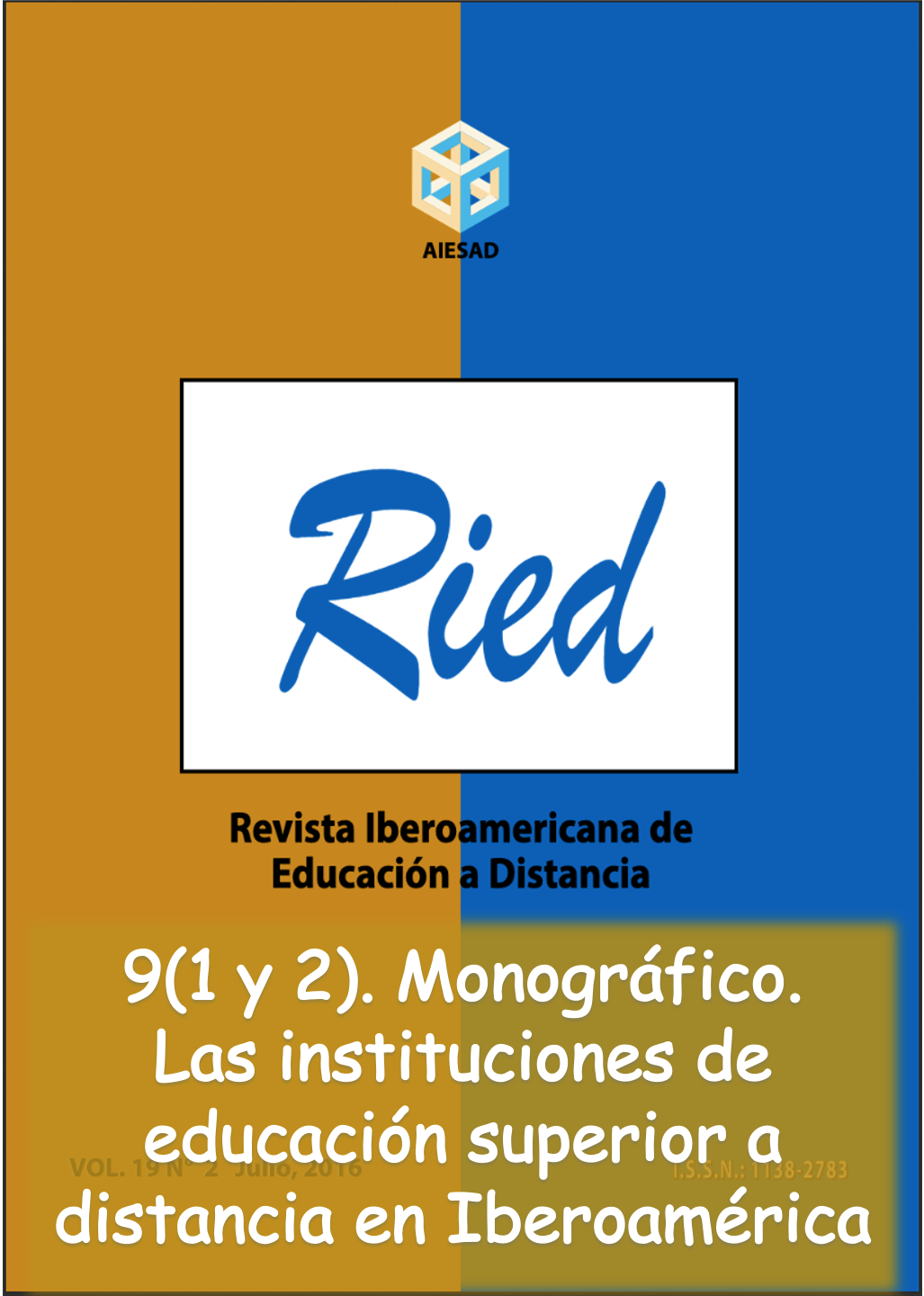The Open University for adults: distance education at Dominican Republic
DOI:
https://doi.org/10.5944/ried.1.9.1038Keywords:
UAPA, distance education, participant, facilitator, PASC, PPROFUNDOAbstract
The Open University for Adults, UAPA (Universidad Abierta para Adultos), at Santiago, Dominican Republic begins its academic and administrative functions in 1995. During those 12 years of existence, 5094 professionals have obtained degrees in the fields of Psychology, Languages, Business Administration,
Law Sciences and Education. The institution is organized under a departmental structure that includes Schools, Departments, Institutes and Centers. The government of the institution is regulated via collegiate entities (Board of
Trustees, Academic Council and Advisory Board) and unitary forms of government (University Director, Deputy Directors, School Directors and Deans, Department Directors, and Center and Institutes Directors). The academic activities developed at UAPA are based on the principle of shared responsibility
between participants and facilitators. The methodology applied is interactive and participatory and the learning techniques are based on the activity of those engaged in the learning process. Since its inception, UAPA has favored the participant’s learning process using didactic methodologies with applications of ICT’s. Currently the University has a web-based educational platform to support
virtual and distance programming and offerings and to implement continued education on-line courses.
Downloads
Downloads
How to Cite
Issue
Section
License
The articles that are published in this journal are subject to the following terms:
1. The authors grant the exploitation rights of the work accepted for publication to RIED, guarantee to the journal the right to be the first publication of research understaken and permit the journal to distribute the work published under the license indicated in point 2.
2. The articles are published in the electronic edition of the journal under a Creative Commons Attribution 4.0 International (CC BY 4.0) license. You can copy and redistribute the material in any medium or format, adapt, remix, transform, and build upon the material for any purpose, even commercially. You must give appropriate credit, provide a link to the license, and indicate if changes were made. You may do so in any reasonable manner, but not in any way that suggests the licensor endorses you or your use.
3. Conditions for self-archiving. Authors are encouraged to disseminate electronically the OnlineFirst version (assessed version and accepted for publication) of its articles before publication, always with reference to its publication by RIED, favoring its circulation and dissemination earlier and with this a possible increase in its citation and reach among the academic community.








